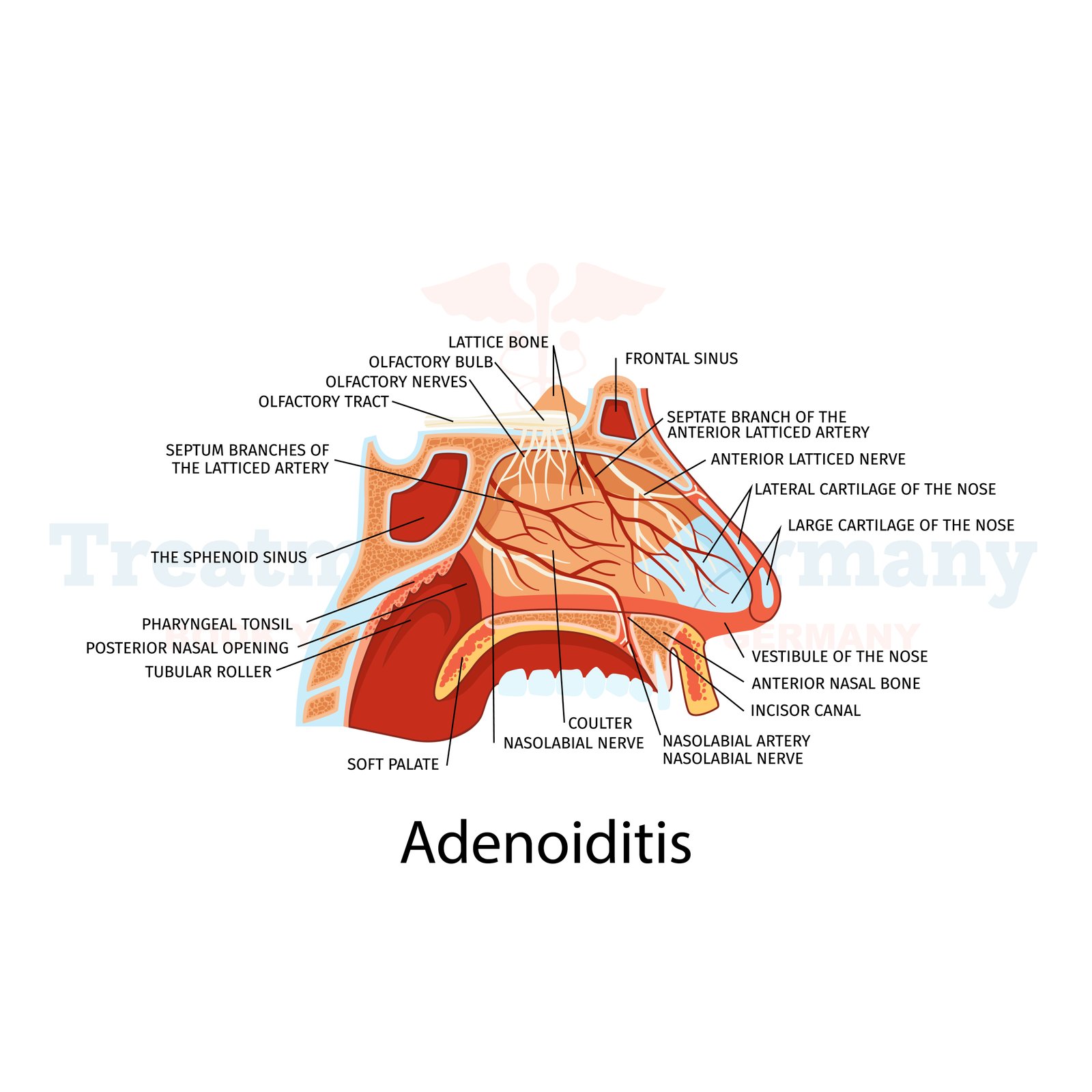What is Adenoiditis:
Adenoiditis is the inflammation of the adenoids, small lymphoid tissues located behind the nose at the back of the throat. They are part of the immune system and help trap bacteria and viruses entering through the nose.
Symptoms of Adenoiditis:
Symptoms of adenoiditis can range from mild discomfort to more severe breathing issues, and may include:
How is Adenoiditis diagnosed?:
Diagnosing Adenoiditis typically involves a combination of medical history review, physical examination, and possibly additional tests. During the physical exam, a healthcare provider may use a small mirror or a flexible scope to visualize the adenoids.
Other diagnostic tests, such as X-rays or nasal endoscopy, may also be performed to assess the severity of the condition and rule out other possible causes of the symptoms.
Potential treatments of Adenoiditis:
The treatment approach for adenoiditis may vary depending on the severity of the symptoms and the individual's overall health. Some potential treatment options include:
1. Antibiotics: If the adenoiditis is caused by a bacterial infection, antibiotics may be prescribed to help clear the infection.
2. Nasal sprays: Nasal corticosteroid sprays can help reduce inflammation and alleviate nasal congestion.
3. Surgery: In cases of chronic or severe adenoiditis that does not respond to other treatments, surgical removal of the adenoids (adenoidectomy) may be recommended. This is typically a minor outpatient procedure performed under general anesthesia.
👉 Contact us for further information and receive a complimentary consultation.


.webp)
 (1).webp)

.webp)
 (1).webp)


.webp)
 (1).webp)

.webp)
 (1).webp)
